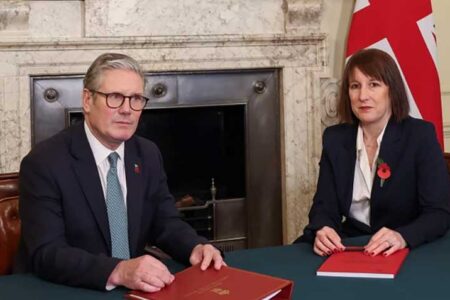The UK government is committed to kick-starting economic growth in the country, but recently released trade figures from HMRC point to a big journey ahead, according to leading audit, tax and business advisory firm Blick Rothenberg.
Simon Sutcliffe, customs and excise partner at the firm, commented: “Trade statistics for 2023, published by HMRC yesterday, show that the UK remains a predominantly services-based economy in international trade, with imports and exports of services dwarfing international trade. The total value of exported services in 2023 amounted to 187 billion pounds sterling, while imports of services amounted to 423 billion pounds sterling.
He added: “In some prominent industries, the value of exports by sector exceeds the value of imports. Importantly, the main industries where imports exceed exports are agriculture and food, and the oil, energy and petroleum sectors. This may fuel opposition claims that the UK remains food and energy insecure.
Sutcliffe continued: “Although reducing import rates in the agriculture, food, oil, energy and petroleum sectors is important at the political and economic levels, the services sector remains crucial to achieving economic growth. We hope that the government will give sufficient focus in future trade deals to issues affecting this.” Part of the economy, such as regulatory frameworks, common standards and access to talent and skills.
He stressed that the United States and China, along with the European Union bloc countries, remain the United Kingdom’s largest single trading partners. The United States is the largest export market with a value of £57.7 billion and an import market with a value of £63.3 billion for goods and services. He said that the United States is closely followed by China, with exports worth £27.3 billion and imports worth £62.2 billion.
Sutcliffe pointed out that this situation puts pressure on the Prime Minister regarding how to deal with trade policies with these major economies.
He added: “EU exports to the UK are worth £189.1 billion, while imports are worth £326 billion. This is one of the largest trade imbalances in the report and perhaps indicates the struggle faced by British companies, whose only external market before Brexit was “Britain’s exit from the European Union is the European Union, after Brexit has to deal with new administrative and customs burdens that have nevertheless affected how people do business in the EU.”
